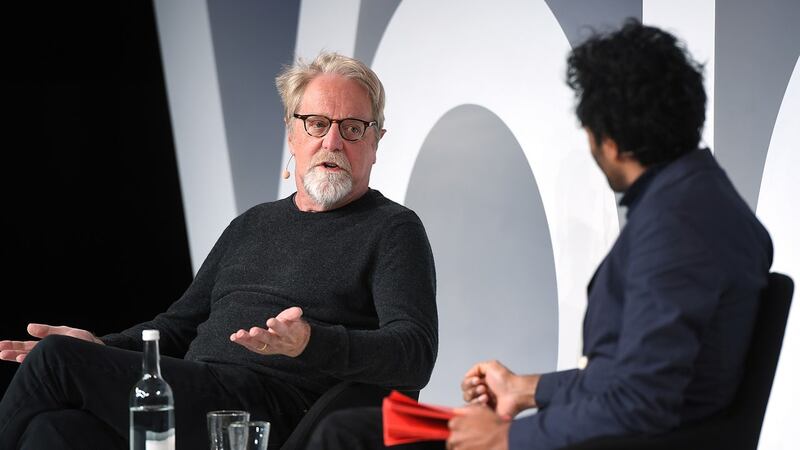
The Business of Fashion
Agenda-setting intelligence, analysis and advice for the global fashion community.

Agenda-setting intelligence, analysis and advice for the global fashion community.

The author has shared a YouTube video.
You will need to accept and consent to the use of cookies and similar technologies by our third-party partners (including: YouTube, Instagram or Twitter), in order to view embedded content in this article and others you may visit in future.
OXFORDSHIRE, United Kingdom — “Amazon now dominates the book business; Amazon would like to dominate the fashion business too,” said Jonathan Taplin, the author of “Move Fast and Break Things,” a polemic on what Taplin sees as the destructive monopolisation of the internet by Google, Facebook and Amazon.
In a live debate with Rohan Silva, co-founder of Second Home, Taplin recounted how “a small group of libertarian entrepreneurs,” including Larry Page and Peter Thiel, hijacked the counter-cultural, decentralised vision for the internet, putting tremendous power in the hands of a few technology platforms to the detriment of cultural producers whose copyrights were fundamentally eroded, undermining their source of economic sustenance.
Rohan countered that “internet platforms make it easier for creators to reach markets.” But Taplin noted the “deflationary” nature of the digital age in which free content is abundant, adding that the tech giants which dominate the attention economy were now developing their own content — and pushing it to the top of user’s feeds. He also questioned the rise of targeted content and advertising, saying: “These companies are in the business of surveillance capitalism.”
Taplin said the growing power of tech platforms was also undermining democracy, citing the rise of fake news and telling a story about a post he saw on Facebook in the wake of the recent mass shooting in Las Vegas that falsely claimed the shooter was a Hillary Clinton supporter who wanted to kill country music fans.
Rohan suggested that the global connectivity of tools like Facebook also allowed people to organise for good, using the example of a group at Second Home that used tech platforms to assist refugees around the world. But Taplin raised the example of the Arab Spring and said the same platforms were being used for surveillance and coercion. Ultimately, Rohan acknowledged that there were persuasive arguments on both sides of the debate and ended with a quip: “Buy Jonathan’s book — just not from Amazon!”
To learn more about VOICES, BoF's annual gathering for big thinkers, in partnership with QIC Global Real Estate, visit our VOICES website and click here to request an invitation to attend.
Related Articles:
[ How Fashion Can Fight AmazonOpens in new window ]
[ Snapchat, Facebook or Instagram: Who Is Winning the Social Media Shopping Race?Opens in new window ]
Successful social media acquisitions require keeping both talent and technology in place. Neither is likely to happen in a deal for the Chinese app, writes Dave Lee.
TikTok’s first time sponsoring the glitzy event comes just as the US effectively deemed the company a national security threat under its current ownership, raising complications for Condé Nast and the gala’s other organisers.
BoF Careers provides essential sector insights for fashion's technology and e-commerce professionals this month, to help you decode fashion’s commercial and creative landscape.
The algorithms TikTok relies on for its operations are deemed core to ByteDance overall operations, which would make a sale of the app with algorithms highly unlikely.